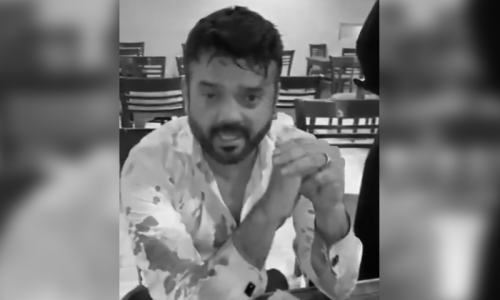PPP leader Naveed Qamar said on Sunday that the approval of political parties’ top leadership is always required for negotiations, adding that it remains to be seen how PTI founder Imran Khan’s views will be incorporated into the ongoing talks between PTI and the government.
Since Imran’s incarceration last year based on several cases, his party’s relationship with the government, as well as the establishment, has turned exceedingly sour. The PTI has held several protests over the last year, most of which escalated into violence after facing state repression.
After PTI’s power show and claims of supporter deaths, tensions rose, leading to calls to ban the party. However, Imran formed a committee for talks, and his lawmakers softened their stance. Following a recommendation from NA Speaker Ayaz Sadiq, Prime Minister Shehbaz Sharif also formed a committee and talks between the parties began to ease tensions.
The first meeting for negotiations between the government and PTI committees was held on Monday, marking the start of long-awaited talks to ease political tensions.
Talking on DawnNewsTV show, PPP leader Qamar said at some point the top leadership has to approve of the developments of the negotiations “so their input is always there”.
Responding to a question as to how the government will get a response from the PTI founder who is incarcerated in Adiala Jail, the PPP leader said it would need to be seen how the government would accommodate Imran’s opinions.
Qamar refuted PTI’s claims that the government and the party were in talks regarding Imran being moved to Adiala under house arrest.
“No such thing was revealed to us. You can hear all kinds of things from the PTI,” he said.
His comments came after PML-N leader Rana Sanaullah said a day ago that if the supremos of all three major political parties — PTI, PML-N and PPP — sat together for negotiations, the crisis that the country has been embroiled in for the last 70 years would be solved within 70 days.
On the other hand, Defence Minister Khawaja Asif, calling for a new social contract, suggested that all ‘power centres’, like the army, the judiciary, and the bureaucracy, should also be a part of negotiations to find a solution to the country’s problems.
Separately, Lal Chand Malhi, a central leader of PTI, in a video message said that former premier Imran reiterated his call for the civil disobedience movement.
According to Malhi, Imran, as part of phase one of the movement, appealed to the overseas Pakistanis to stop sending any revenue to the country until PTI’s demands for negotiations were met.
Malhi called on the overseas citizen of Pakistan to actively participate in the success of the movement.












































